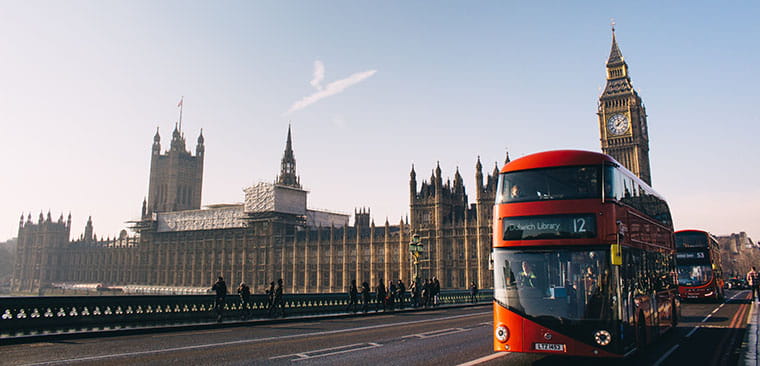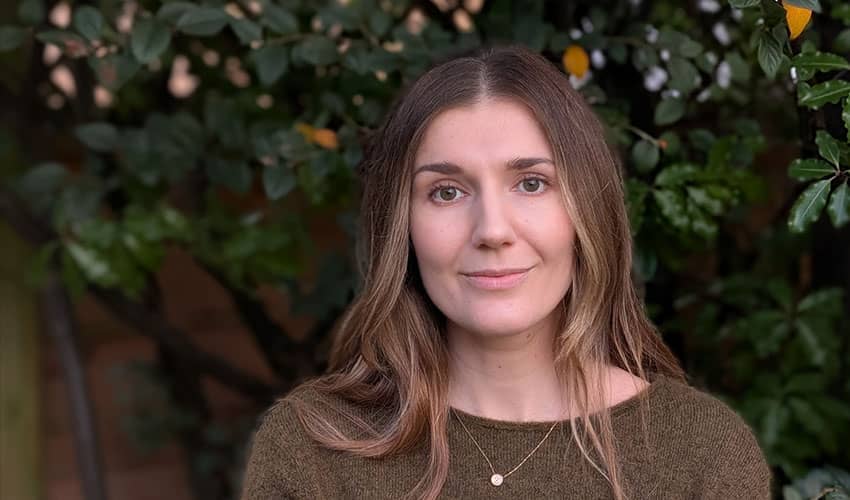UK can afford to keep fighting Covid-19 crisis, according to study co-led by UWE Bristol economist

The UK Government can afford continued measures to fight the Covid-19 crisis and to invest in a broad-based recovery stimulus, as debt levels will remain manageable in the medium term, according to economists in a discussion paper for the Institute for Public Policy Research think tank.
The economists Dr Jo Michell, an Associate Professor at UWE Bristol’s Faculty of Business and Law, and Rob Calvert Jump, of the University of Greenwich, have created an interactive tool to model the likely economic scenarios, which launches to the public today.
The tool is designed to enable the public to see inside the “black box” of economic policy-making.
The modelling reveals that:
- Under a three-month lockdown scenario, there is likely to be a peak debt-to-GDP ratio of around 120 per cent of GDP.
- This rises to more than 130 per cent in a six-month lockdown scenario, which assumes “scarring” effects on medium-term growth.
The paper, Inside the black box: the public finances after coronavirus, also argues that the high degree of uncertainty around the economic outcomes should be better communicated by institutions such as the Office of Budget Responsibility (OBR).
The new tool uses fan charts to demonstrate this uncertainty and allows users to modify different factors to see how such changes affect the potential economic outcome. It compares user-generated scenarios with that of the OBR, revealing that the OBR’s modelling emerges as a “best-case scenario”, implying a quick recovery and lower debt.
The authors argue that the economy is “not like a spring that will simply recoil once restrictions are lifted”. They say that forecasts from the OBR and Bank of England that show a rapid “V-shaped” recovery are “implausible” due to the phased end to lockdown and long-term “scarring” effects on the economy likely to be caused by job losses and bankruptcies.
The paper emphasises, however, that even in scenarios with relatively higher levels of debt, public debt would remain manageable, due to the very low interest rates on government debt. Even if these rates were to rise, it would take time to feed through into higher debt servicing costs for interest payments, according to the economists.
Once the most acute phase of the crisis has passed, debt is likely to be higher, but this will still leave room to enact a much-needed, broad-based stimulus to the UK economy.
Carsten Jung, IPPR Senior Economist, said: “This work shows that public debt levels may well end up higher than the OBR has stated, but that we can afford to sustain a higher debt level. The government should do what it takes to kickstart the economy and not jump to debt-reduction mode. Smart tax reform, alongside investment in infrastructure, high-quality public services and the green transition, can help the UK grow out of its debt in the medium term.
“Interest rates are currently so low that even a doubling of the UK’s debt would still mean the Treasury pays less to service this debt, as a share of tax receipts, than almost any time since 1950.”
Dr Michell said: “Recent fiscal scenarios from the OBR and Bank of England understate the likely economic damage caused by coronavirus. The public should be ready for a weaker economy and higher public debt than these predict.”
Mr Calvert Jump said: “Forecasts play an influential role in framing debates about government spending, taxation, and the deficit. But these are often constructed using ‘black box’ models which are difficult for non-economists to engage with. This is unnecessary and damaging to democratic engagement with policymaking.
“Our interactive forecasting tool allows users to gain an intuitive understanding of the dynamics of public debt, and describes the policy options available to the government in a transparent manner.”
Related news

16 February 2026
UWE Bristol researchers awarded grant to explore impact of asset recovery on offenders
UWE Bristol academics have been awarded funding to explore of the impact of asset recovery on deterring offender behaviour and disrupting crime networks.

10 February 2026
Work by UWE Bristol lecturer features in Government’s National Cancer Plan
Work by a UWE Bristol academic has been included in the Government’s National Cancer Plan.

23 January 2026
On-demand minibus services beneficial in rural areas but face financial challenges, trials suggest
Trials of ‘demand responsive transport’ minibus services boosted connectivity for people in rural and suburban areas, according to a new report produced by UWE Bristol researchers.

18 December 2025
UWE Bristol professor appointed National Institute for Health and Care Excellence CEO
Jonathan Benger CBE, Professor of Emergency Care at UWE Bristol, has been appointed as the new chief executive officer of the National Institute for Health and Care Excellence (NICE).

17 December 2025
Findings revealed from first UK study into experiences of mothers who are survivors of rape pregnancy
UWE Bristol academics have revealed the findings of the first UK-based study of the experiences of mothers who are survivors of rape pregnancy.

11 December 2025
Social media influencer work is far more demanding than it looks, research finds
A study exploring the mental health impacts of social media influencer work has revealed that life online is far more demanding than it appears.

25 November 2025
UWE Bristol experts join film Q&A exploring music and melodrama
Academics will take part in the Cary Comes Home Festival, with a post-screening Q&A exploring music, melodrama and emotional storytelling in classic cinema.

17 November 2025
Urgent reform needed to support ambulance-delivered end of life care, study finds
More than three quarters (78 per cent) of paramedics sometimes fear doing the wrong thing when caring for people in the last year of life, new research has found.

13 November 2025
Bristol’s screen industry experiences “boom-and-bust cycle” after post-pandemic recovery, new research from UWE Bristol finds
New research from UWE Bristol provides detailed insight into Bristol's screen sector.

13 November 2025
New AI research to revolutionise animal welfare
A UWE Bristol research project will combine behavioural science and AI to create technology that understands not only what animals do, but how they feel.

10 November 2025
Lessons from Low Traffic Neighbourhoods will drive better public engagement, study finds
Lessons from Low Traffic Neighbourhoods have informed a new toolkit to improve engagement with the public on challenging local street issues.

06 November 2025
First-of-its-kind study aims to help more people spend their final days at home
A new study will explore how architectural design could support end-of-life care in domestic settings.






